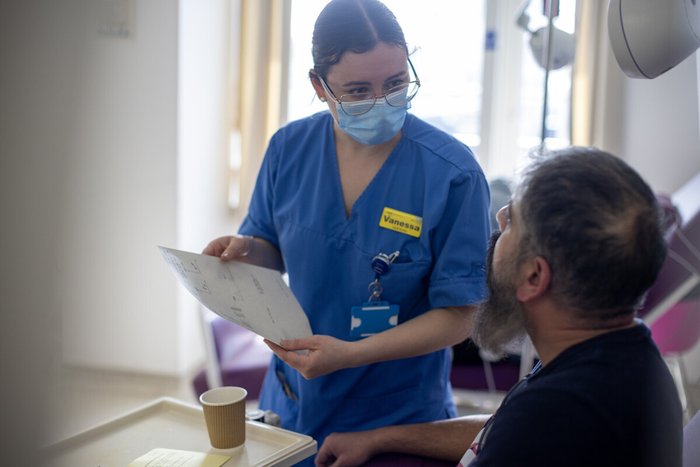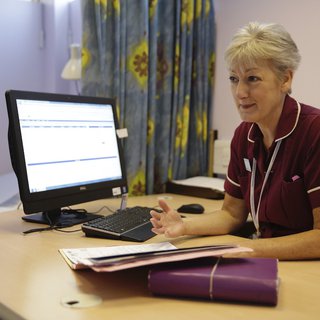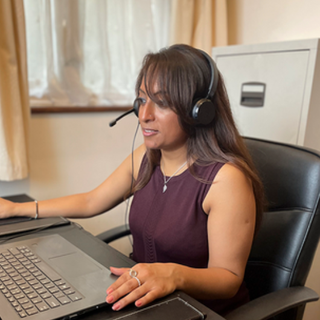Help improve access to clinical trials for minority ethnic groups
We aim to improve awareness and access to blood cancer clinical trials for minority ethnic groups. To achieve this, we need the support of healthcare professionals, academics and researchers.

On this page you'll find information about
Project background
Some types of blood cancer are up to three times more common in certain ethnic groups. Yet people from minority ethnic backgrounds are less likely to take part in clinical trials. This project is about understanding why that happens, and working together to create solutions that improve awareness and access to blood cancer clinical trials.
Research shows that people from minority ethnic groups are underrepresented in medical studies and clinical trials. They often face longer delays before diagnosis, have lower awareness of blood cancer symptoms, and report poorer experiences of care.
You can read more in our reports:
This project is funded by Bristol Myers Squibb, they have had no input into its content or direction. Read about how we work with the pharmaceutical industry.
Project aims
We want to listen and learn from Black and Pakistani communities about their experiences with clinical trials, the barriers they face, and what could make access easier. Our aim is to co‑create solutions that raise awareness, improve access, and help reduce health inequalities.
We’re focusing here because blood cancer affects these communities differently:
- Multiple myeloma is more common among Black African and Black Caribbean people.
- Leukaemia rates are slightly higher among Pakistani men, women and children, and Black African women.
- Some types of lymphoma are more common among Pakistani and Black African people, and Indian men.
Our approach
Phase 1 (discovery and design)
We collaborated with The Social Innovation Partnership (TSIP) to explore how people feel about clinical trials, and the barriers that can prevent participation.
TSIP used a participatory approach, bringing in people with lived experience as community researchers. Together, they spoke directly with people affected by blood cancer from Black and Pakistani backgrounds, as well as healthcare professionals and researchers, to gather honest and meaningful insights.
We then held workshops where everyone involved could come together to look at the barriers, share ideas for solutions, and test out new approaches.
Phase 2 (development and testing stage)
Next, we partnered with CAHN (Caribbean and African Health Network) to trial different ways of building trust and support. This included webinars and peer support groups, designed to create safe spaces for learning and connection.
The findings from phase 1 showed how important it is to have information about clinical trials that is co-created, culturally relevant, and shaped by the communities themselves. To make this happen, we teamed up with Egality Health to produce video content that answers common questions, challenges myths, and encourages people from Black and Pakistani communities to feel confident about considering clinical trials.
Receive project updates
This project depends on the voices and expertise of people across the blood cancer community. By subscribing to our newsletter, you’ll be the first to hear about updates, insights, and opportunities to get involved.
You can contribute support the project in several ways, including:
- Sharing your experiences – whether you’re affected by blood cancer or supporting someone who is.
- Offering clinical expertise – helping us understand the challenges and opportunities from a professional perspective.
- Joining interviews and workshops – adding your voice to discussions that shape the project.
- Helping design new tools and resources – contributing to prototype development and testing.
If you’d like to talk to us about the project, please get in touch with our Clinical Engagement Team.


